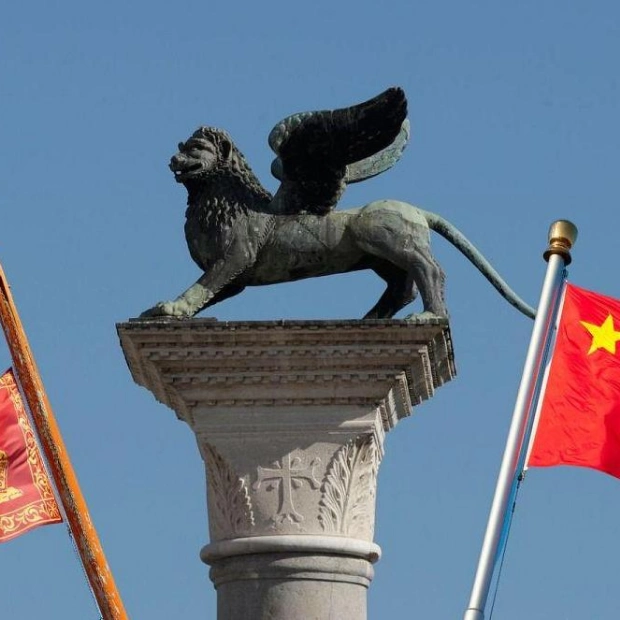The headlines were undeniably thrilling. Phrases like “Global rebel league” and “Rugby revolution” are designed to grab attention and generate clicks. Similar to the Kerry Packer cricket revolution in the 1970s and the recent LIV golf controversy, traditional sports authorities can sometimes be caught off guard by wealthy newcomers who believe they can improve the game. With rugby in need of significant new investment, the timing seemed perfect. The offer of one million pounds per year to the top 40 players? It’s no surprise that some players—anonymously, of course—have shown preliminary interest in signing up. The crucial word here is ‘preliminary.’ Everything hinges on the specifics of the proposed venture.
In theory, the plan is to emulate the Formula One model, organizing 14 weekends of top-tier rugby around the world, with a touch more glamour than the usual Dragons v Zebre match. Eight men’s franchises, involving around 280 of the world’s best players, would play in new markets, seamlessly integrating with the existing international calendar. Someone, somewhere, has clearly been brainstorming on the back of a napkin. They’ve then hired a well-connected firm to promote the idea through a couple of media outlets to gauge public interest.
For those who’ve seen other revolutionary proposals come and go, reality soon sets in. It’s a shame the initiators didn’t consult for some free, unsolicited advice beforehand. The main reason these schemes never materialize is that their creators fail to understand what rugby union is truly about. They overlook the essence of the game’s appeal to fans and players. While money is important, rugby is also about passion, communal pride, and a rich tradition. It’s about giving your all for your team, region, or country and embracing a cause greater than oneself. And, if you’re talented enough, playing in competitions and wearing jerseys that matter deeply to both players and fans.
What rugby isn’t about is creating superficial leagues funded by individuals with more money than sense, aimed at fans who might be naive enough to believe they’re witnessing something meaningful. Imagine the Arizona Muskrats versus the Paris Musketeers, or Allianz London against the Emirates Kings, all played in different global cities? The concept has several logistical challenges to overcome first.
What about the existing domestic leagues that would be cannibalized or destroyed? And the thousands of fans who would be directly affected? Money might rule in professional golf, but rugby is fundamentally a team sport. Can you imagine Antoine Dupont, the world’s best player, leaving France and Toulouse at the drop of a hat? Or the French federation and Top 14 backers admitting defeat so easily? A shorter season and better player welfare might sound appealing, but it becomes less so if it means giving up the right to play Test rugby or participate in World Cups. The chances of the Rugby Football Union approving such a scenario, especially after just agreeing to a new long-term deal with leading English clubs, are virtually nil.
It seems the US-based backers envision the Indian Premier League as a model. This overlooks the fact that cricket was already deeply rooted in India, with a vast domestic audience. If Formula One is also a model, they should remember that rugby players get injured more frequently than in most other sports. Unlike Max Verstappen, rugby players don’t just sit out a few races with a groin strain.
We could continue, but it’s clear that rugby already has its own global circuit for men and women. It’s called the world sevens circuit, and while it’s increasingly costly, it’s been struggling to maintain its appeal. If rugby wants to attract more global attention, it should focus on expanding its Olympic presence and investing in international forms of the game where more than half a dozen countries have a realistic chance of winning.
Besides, this proposed venture feels unnaturally forced, a fleeting sugar rush that will be hard to sustain. Who would care if the Muskrats beat the Kings in Chicago on a Friday evening? Rugby needs to find other ways to pay its bills, but cutting off grassroots support and pouring more money into a few pockets isn’t the solution. If the professional club game can’t sustain itself financially outside a few domestic markets, so be it. International rugby, as seen recently, has rarely been more appealing. World Cups, Lions tours, and tournaments like the Six Nations already offer players the chance to boost their global profiles. Fans care deeply about who wins and don’t need to travel to Riyadh or Rio to watch live games. Revolution Ruck? A game-changing new chapter for rugby? Good luck with that.
Source link: https://www.theguardian.com






